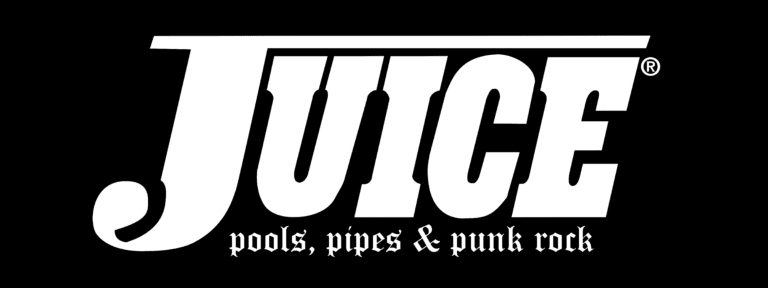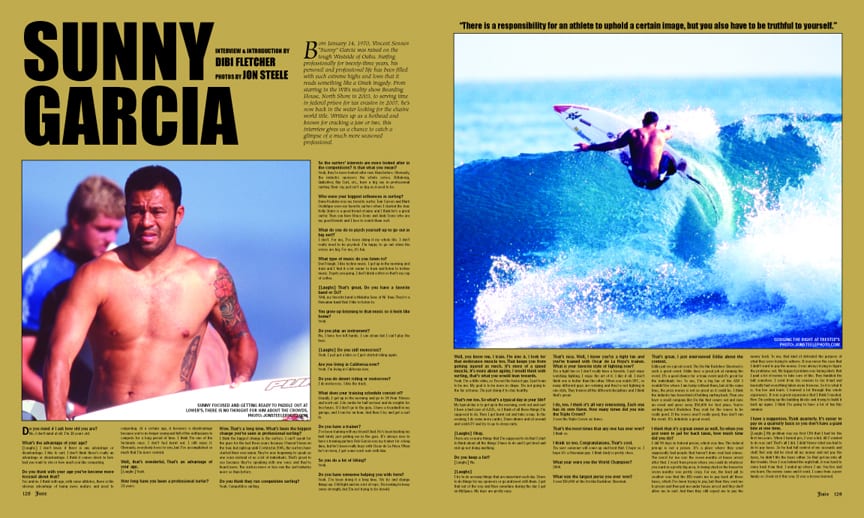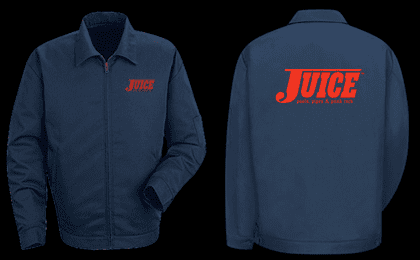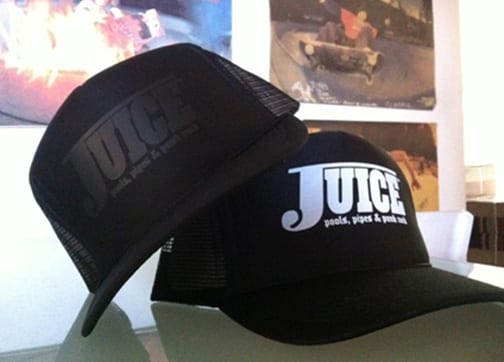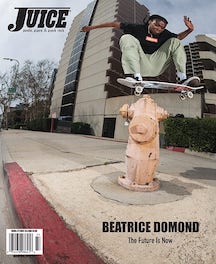INTERVIEW AND INTRODUCTION BY DIBI FLETCHER
PHOTOS BY JON STEELE
Born January 14, 1970, Vincent Sennen ‘Sunny’ Garcia was raised on the tough Westside of Oahu. Surfing professionally for twenty-three years, his personal and professional life has been filled with such extreme highs and lows that it reads something like a Greek tragedy. From starring in the WB’s reality show Boarding House, North Shore in 2003, to serving time in federal prison for tax evasion in 2007, he’s now back in the water looking for the elusive world title. Written up as a hothead and known for cracking a jaw or two, this interview gives us a chance to catch a glimpse of a much more seasoned professional.
“THERE IS A RESPONSIBILITY FOR AN ATHLETE TO UPHOLD A CERTAIN IMAGE, BUT YOU ALSO HAVE TO BE TRUTHFUL TO YOURSELF.”
Do you mind if I ask how old you are?
No, I don’t mind at all. I’m 38 years old.
What’s the advantage of your age?
[Laughs] I don’t know if there is any advantage or disadvantage. I like to surf. I don’t think there’s really an advantage or disadvantage. I think it comes down to how bad you want to win or how much you like competing.
Do you think with your age you’ve become more focused about that?
Yes and no. I think with age, with some athletes, there is the obvious advantage of being more mature and used to competing. At a certain age, it becomes a disadvantage because you’re no longer young and full of the enthusiasm to compete for a long period of time. I think I’m one of the fortunate ones. I don’t feel burnt out. I still enjoy it. Obviously, everybody loves to win, but I’ve accomplished so much that I’m more content.
Well, that’s wonderful. That’s an advantage of your age.
[Laughs] Yeah.
How long have you been a professional surfer?
23 years.
Wow. That’s a long time. What’s been the biggest change you’ve seen in professional surfing?
I think the biggest change is the surfers. I can’t speak for the guys for the last three years because I haven’t been on the tour, but right up until I retired in 2005, the surfers have started their own union. They’re now beginning to speak as one voice instead of as a lot of individuals. That’s great to see because they’re speaking with one voice and they’re heard more. The surfers more or less run the surf industry more so than before.
Do you think they run competitive surfing?
Yeah. Competitive surfing.
So the surfers’ interests are more looked after in the competitions? Is that what you mean?
Yeah, they’re more looked after now than before. Obviously, the industry sponsors the whole series. Billabong, Quiksilver, Rip Curl, etc., have a big say in professional surfing. Their say just isn’t as big as it used to be.
Who were your biggest influences in surfing?
Dane Kealoha was my favorite surfer. Tom Curren and Mark Occhilupo were my favorite surfers when I started the tour. Kelly Slater is a good friend of mine and I think he’s a great surfer. Then you have Bruce Irons and Andy Irons who are my good friends and I love to watch them surf.
What do you do to psych yourself up to go out in big surf?
I don’t. For me, I’ve been doing it my whole life. I don’t really need to be psyched. I’m happy to go out when the waves are big. For me, it’s fun.
What type of music do you listen to?
Don’t laugh. I like techno music. I get up in the morning and train and I find it a lot easier to train and listen to techno music. It gets you going. I don’t drink coffee so that’s my cup of coffee.
[Laughs] That’s great. Do you have a favorite band or DJ?
Well, my favorite band is Makaha Sons of Ni`ihau. They’re a Hawaiian band that I like to listen to.
You grew up listening to that music so it feels like home?
Yeah.
Do you play an instrument?
No, I have two left hands. I can strum but I can’t play the keys.
[Laughs] Do you still motocross?
Yeah. I just got a bike so I just started riding again.
Are you living in California now?
Yeah. I’m living in California now.
Do you do desert riding or motocross?
I do motocross. I like the track.
What does your training schedule consist of?
Usually, I get up in the morning and go to 24 Hour Fitness and work out. I do cardio for half an hour and do weights for two hours. If I don’t go to the gym, I have a treadmill in my garage, and I run for an hour. And then I try and get a surf in.
Do you have a trainer?
I’ve been training with my friend Chad. He’s been busting my butt lately just getting me in the gym. It’s always nice to have a training partner. Rob Garcia was my trainer for a long time, but he’s been really busy with Oscar de La Hoya. When he’s in town, I get some work outs with him.
So you do a lot of lifting?
Yeah.
Do you have someone helping you with form?
Yeah. I’ve been doing it a long time. We try and change things up. I lift light and do a lot of reps. I’m looking to keep some strength, but I’m not trying to be Arnold.
Well, you know me. I train. I’m into it. I look for that endurance muscle too. That keeps you from getting injured as much. It’s more of a speed muscle. It’s more about agility. I would think with surfing, that’s what you would lean towards.
Yeah. I’m a little older, so I’m not the fastest guy. I just train to be me. My goal is to be more in shape. I’m not going to the far extreme. I’m just doing it to stay healthy.
That’s me too. So what’s a typical day in your life?
My typical day is to get up in the morning, work out and surf. I have a bad case of A.D.D., so I think of all these things I’m supposed to do. Then I get burnt out and take a nap. In the evening, I do some more cardio. I have dinner and sit around and watch TV and try to go to sleep early.
[Laughs] Okay.
There are so many things that I’m supposed to do that I start to think about all the things I have to do and I get tired and end up not doing anything.
Do you keep a list?
[Laughs] No.
[Laughs]
I try to do as many things that are important each day. I have to do things for my sponsors or go and meet with them. I get that out of the way and then sometime during the day I get on MySpace. My days are pretty easy.
That’s nice. Well, I know you’re a fight fan and you’ve trained with Oscar de La Hoya’s trainer. What is your favorite style of fighting now?
I’m a fight fan so I don’t really have a favorite. I just enjoy watching fighting. I enjoy the art of it. I like it all. I don’t think one is better than the other. When you watch UFC, so many different guys are winning and they’re not fighting in one style. They train in all the different disciplines and I think that’s great.
I do, too. I think it’s all very interesting. Each one has its own flavor. How many times did you win the Triple Crown?
I won the Triple Crown six times.
That’s the most times that any one has ever won?
I think so.
I think so too. Congratulations. That’s cool.
I’m sure someone will come up and beat that. I hope so. I hope it’s a Hawaiian guy. I think Andy is pretty close.
What year were you the World Champion?
2000.
What was the largest purse you ever won?
I won $50,000 at the Da Hui Backdoor Shootout.
That’s great. I just interviewed Eddie about the contest.
Eddie put on a great event. The Da Hui Backdoor Shootout is such a great event. Eddie does a great job at running the event. It’s a good chance for a team event and it’s great for the individuals too. To me, I’m a big fan of the ASP. I wouldn’t be where I am today without them, but at the same time, the prize money is not as great as it could be. I think the industry has been kind of holding surfing back. Then you have a small company like Da Hui that comes out and runs an event and gives away $50,000 for first place. You’re surfing perfect Backdoor. They wait for the waves to be really good. If the waves aren’t really good, they don’t run the event. It’s definitely a great event.
I think that it’s a great event as well. So when you just went to jail for back taxes, how much time did you do?
I did 90 days in federal prison, which was fine. The federal pen-up is not a prison. It’s a place where they send supposedly bad people that haven’t done real bad crimes. The worst for me was the seven months of house arrest after that. I went from prison where you could do whatever you want in a pretty big area, to being stuck in the house for seven months was pretty crazy. For me, the hard pill to swallow was that the IRS wants me to pay back all these taxes, which I’ve been trying to pay, but then they sent me to prison and then put me under house arrest and they don’t allow me to surf. And then they still expect me to pay the money back. To me, that kind of defeated the purpose of what they were trying to achieve. It was never the case that I didn’t want to pay the money. I was always trying to figure the problems out. My biggest problem was hiring idiots that I paid a lot of money to take care of this. They fumbled the ball somehow. I went from tax evasion to tax fraud and basically had everything taken away from me. So it is what it is. You live and learn. I learned a lot through this whole experience. It was a great experience that I think I needed. Now I’m picking up the building blocks and trying to build it back up again. I think I’m going to have a lot of fun this summer.
I have a suggestion. Think quarterly. It’s easier to pay on a quarterly basis so you don’t have a giant bite at one time.
[Laughs] My problem was my first CPA that I had for the first ten years. When I turned pro, I was a kid. All I wanted to do was surf. That’s all I did. I didn’t know what you had to do to pay taxes. So he had full control of my accounts and stuff. Not only did he steal all my money and not pay the taxes, he didn’t file the taxes either. So that got me into all this trouble. Once I was behind the eight ball, it was hard to come back from that. I ended up where I am. You live and you learn. The money came and it went. I came from a poor family so I look at it this way. It was a lesson learned.
I find it interesting, because I see a lot of kids get this money, but it doesn’t mean that they have any sense of money management. It would be nice if the companies would offer someone that young athletes could talk to about the money.
I think it will get around that way. There are a lot of really caring people in the surf industry. I think, eventually, the companies will withhold taxes for these kids and help them manage their money much better. Right now, to be a surf star, a lot of surfers, even myself, made a lot of money. And kids nowadays are making a whole lot more money. The kids have to be careful. The more money you make, the more people there are that want to hang on and the more people that want to get a hold of some of that money.
If you surf in the caliber of surf that you surf, you spent your life surfing. You didn’t spend your life becoming a money manager. My boys surf and I’ve been in this a long time and I’ve always seen that as a big problem for all you young guys. So the press likes to make athletes into role models. Do you look at yourself as a role model?
[Laughs] No.
Do you think it’s a responsibility of an athlete to be a role model?
There is a certain responsibility for an athlete to uphold a certain image, but you also have to be truthful to yourself. I’ve always tried to be me. I understand there is a certain amount of responsibility. I was just lucky enough to be a really good surfer and fortunate enough to have the talent to be one of the top guys in the sport. I’ve done a lot of things that would make a parent proud. I try to help kids as much as I can.
FOR THE REST OF THE STORY, ORDER ISSUE #64 BY CLICKING HERE…
SHARE THIS POST:
- Click to email a link to a friend (Opens in new window)
- Click to share on Tumblr (Opens in new window)
- Click to share on LinkedIn (Opens in new window)
- Click to share on Pinterest (Opens in new window)
- Click to share on Twitter (Opens in new window)
- Click to share on Facebook (Opens in new window)
- Click to share on Reddit (Opens in new window)
- Click to print (Opens in new window)
